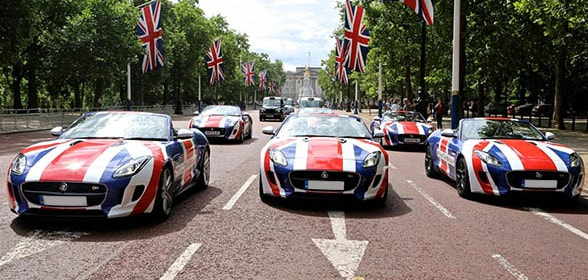Gove's comments confirmed U.K. newspaper reports on Tuesday that said from 2040 all new vehicles sold must be fully electric as part of a plan to clean up air pollution.
The sale of new hybrid vehicles that have an electric motor combined with a gasoline or diesel engine would also end under the plan, The Times said.
The U.K. is the latest European country to focus on electric vehicles for future transportation. France also plans to end the sale of gasoline- and diesel-powered vehicles by 2040in a bid to become a carbon-neutral nation. German cities including Stuttgart and Munich have also said they are considering banning some diesel vehicles, which are blamed for harmful NOx emissions.
The U.K.'s step will likely accelerate the decline of diesel cars in the U.K., Europe's second-biggest market after Germany.
Demand for diesel cars fell 10 percent in the first half in Britain while sales of gasoline vehicles rose 5 percent, according to industry data. Sales of electric and hybrid models increased nearly 30 percent in the same period, the fastest growing section of the market, but it still accounts for less than 5 percent of new-car registrations.
Mike Hawes, chief executive of the Society of Motor Manufacturers and Traders, said consumers should be given incentives to buy electric cars. "Outright bans risk undermining the current market for new cars and our sector, which supports over 800,000 jobs across the U.K.," he said. "The industry instead wants a positive approach which gives consumers incentives to purchase these cars."
Hawes said demand for alternatively fueled vehicles is still at a very low level because consumers have concerns over affordability, range and charging points. "We could undermine the U.K.’s successful automotive sector if we don’t allow enough time for the industry to adjust," he said.
Diesel restrictions
In a BBC interview on Wednesday, Gove said the government would make 200 million pounds ($261 million) available to local authorities shortly for schemes to restrict diesel vehicles' access to polluted roads. He said he favored road-by-road restrictions for diesel vehicles rather than outright bans from town centers or costly vehicle scrappage schemes, but did not rule them out entirely if they were local authorities' preferred options.
"It's important we all gear up for a significant change which deals not just with the problems to health caused by emissions but the broader problems caused in terms of accelerating climate change," Gove said on the "Today" show on BBC Radio 4.
The British government is right to put an expiry date on dirty gasoline and diesel engines, "but 2040 is far too late," said Areeba Hamid, a clean-air campaigner at Greenpeace UK. "Car manufacturers like Volvo have announced their intention to move away from petrol and diesel by the end of this decade. Germany, India, the Netherlands and Norway are all considering bans by 2030 or sooner," Hamid said in a statement.
The U.K. has been under pressure to take measures to reduce air pollution after losing legal cases brought by campaign groups. The decision is partly brought on by stringent European Union emission rules that the U.K. must follow even as it is set to leave the bloc.
Ahead of the June general election, the governing Conservatives pledged to make "almost every car and van" zero-emission by 2050. "Today we are confirming that there should be no new diesel or petrol vehicles by 2040," Gove told BBC Radio on Wednesday.
The move comes as the U.K. plans to invest more than 800 million pounds ($1 billion) in driverless and zero-emission technology as part of its post-Brexit industrial strategy. The Department for Business, Energy and Industrial Strategy outlined plans to invest 246 million pounds in battery technology research earlier this week. BMW said on Tuesday it will build an electric version of its Mini car in Britain.
The global shift toward electric vehicles will create upheaval for industry - from oil majors harmed by reduced gasoline demand to spark plug and fuel injection manufacturers whose products aren't needed by plug-in cars.
Car manufacturers are already adapting to the new reality. Earlier this month, Volvo became the first major traditional automaker to set a date for phasing out vehicles powered solely by the internal combustion engine by saying all its new models launched after 2019 will be electric or hybrids.

 RSS Feed
RSS Feed